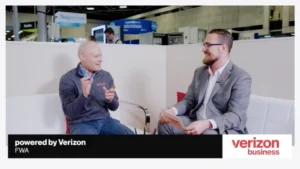Beyond Fukushima: Nuclear Energy is Critical to Achieve Net Zero
The Fukushima Nuclear plant fallout continues as nations try to balance the risks while realizing the potential and need for nuclear energy.
Japan initiated its planned release of treated radioactive water from the Fukushima nuclear plant into the Pacific, a decision that has drawn international criticism and economic consequences. In a swift response, China immediately banned all Japanese aquatic products, voicing concerns over potential radioactive contamination. This move, greenlit by the Japanese government two years prior and recently endorsed by the U.N. nuclear watchdog, is a pivotal step in decommissioning the Fukushima Daiichi plant, which suffered severe damage from a 2011 tsunami. However, with protests erupting globally and significant economic implications on the horizon, the long-term effects of this decision remain uncertain.
No matter the decision, many will wonder about its safety/efficacy by Japanese energy officials. How might this decision impact public perception around nuclear energy, especially as citizens gain a renewed interest in its place among renewable energy alternatives?
Christopher Gadomski, Lead Analyst, Nuclear for BloombergNEF, weighed in on the controversial move and its potential impact on seeking nuclear power solutions in the future.
Christopher’s Thoughts
“The level of radiation of tritium in the water is well below world standards. And so, to me, I believe that it’s something that was the right thing to do. I’m head of nuclear research for Bloomberg NEF. I teach economics and finance for New York University, the Center for Global Affairs. I visited Fukushima in 2013 or 2015, two to four years after the accident. And when I was there, you could see already hundreds of these large storage tanks that were accumulating water that had been contaminated.”
Radiation Levels and Safety Measures
“The Fukushima power plant is built on a plateau. They excavated down, and water falls from the mountains behind there through the plateau and came into the basement of the nuclear power plant, came in contact with the melted reactors, and became contaminated. And so to prevent it from running further into the sea, the engineers at Fukushima collected this water. They put it in storage tanks, and they were contaminated by strontium, cesium, iodine, and various radionuclides. And they have to sort of deal with them. So they applied this advanced liquid processing system that came from, I believe, the Europeans or so. And this processing took the water and removed all of the 65 radionuclides from the water. What they did not remove from the water was tritium. And they can’t remove tritium because tritium is an isotope of hydrogen. And it’s very, very difficult to use the Alps system to remove the tritium. So you have, I understand, a thousand tanks on the site now, accumulating something like 100,000 liters of water a day. And you came to the point where you needed to do something. And so, they decided to release the water into the ocean.”
Public Perception and International Reactions
“From what the IAE, the International Atomic Energy Agency, has said, is that the level of radiation of tritium in the water is well below world standards. And so, to me, I believe that it’s something that was the right thing to do because the Japanese have spent the last ten years worrying about trying to collect and treat this water. A variety of international organizations have looked at it and said, yes, it’s below certain levels. And if we do it properly, we can release it out to the sea. It’s what the stars are doing today. When I was in Fukushima again, in 2013 or 2015, we went to a local sushi restaurant and had some fantastic sushi for dinner. And I’m still alive. I have yet to turn green. And so, you know, there is a concern because radiation is one of those things that people don’t quite understand.
We believe the World Health Organization, and we believe the International Atomic Energy Agency, the Japanese government, and TEPCO, the utility, the operating plant, that these may have reduced the danger of this water that’s being released to well below global standards. It’s like eating a couple of bananas a day because there’s a lot of potassium in bananas, which are radioactive. And so if you eat 15 bananas, that’s equivalent to some of the exposure that you would be getting if you were to be in contact with this water. And, you know, people eat bananas every day. I had mine today. But what I think is happening is that there’s no real love lost between the Chinese, the Japanese, and Koreans on certain levels. At certain levels, they are cooperating helping each other. On other levels, they’re competing. And so, in my estimation, the efforts by the Koreans and the Chinese, more specifically the Chinese, they’re like sticking their fingers in the Japanese eye by making a very big issue of all of this when theoretically it shouldn’t be an issue. It’s a concern. You are releasing tritiated water. Tritium has a very short half-life. It’s an isotope of hydrogen. It is radioactive. But to me, the problem is being blown out of proportion.”
Nuclear Energy’s Role in Achieving Net Zero
“However, it’s something that has to be calculated for all the nuclear industries. It’s another topic that we’re having a tremendous amount of coverage about this event today. And it is another negative label for the nuclear energy industry, which I think is unwarranted. It’s my opinion that if you are really trying to achieve net zero, which many countries worldwide are trying to do, nuclear has to play a key role in doing that as a complement to renewables. And this doesn’t help the public image of nuclear power because they may be releasing this water for many years to come. Everybody loves to hate nuclear power because they’re afraid of it. They don’t understand it.
I drove within 10 yards of the Fukushima reactor that was damaged. I got a slight radiation dose. I’m still here. And I think people don’t understand it. I also traveled to visit that site with some MIT scientists, and they judged the Japanese reaction to the evacuation of all the people from Fukushima as being much greater than warranted. And if you go to Chernobyl these days, I have not been there, but I understand the area is thriving with wildlife. And, you know, low radiation levels persist there, but it has not been ultimately very damaging to people. But it’s a very testy subject. And many people go back and forth and like to explain that there is a real serious problem with radiation.”
International Cooperation in Nuclear Energy
“And going back to the aspect of cooperation, there’s cooperation between General Electric and Hitachi, two leading U.S. and Japanese firms, to commercialize the next generation of nuclear. There is a lot of international cooperation. The Koreas are involved in working with other European companies and building reactors very successfully in the Middle East and working with Westinghouse at times. There are loggerheads regarding licensing the intellectual property of the reactors. But it’s very, very important. It’s a global problem, climate change, the net zero. And aspirations, I think, can only really be addressed if you have a large contribution of nuclear to complement an even larger deployment of renewables.
Yeah, I think that one of the things that I talk about and maintain is that nuclear energy is a very, very critical thing. And those companies, those countries that manage the build-out of their nuclear energy infrastructure, will play a more important role in the future than those countries that ignore it. And I’m concerned right now that the U.S., although it’s trying to develop many different types of advanced reactors, other countries, the Russians, and the Chinese, are more aggressive in building and reaching out and building nuclear reactors in other parts of the world. And so the U.S., on the surface, seems to be quite well behind the competition in Russia and China for building new reactors around the world. A cooperative agreement between the U.S. and Japan and U.S. and Korea to build reactors in this country and elsewhere, I think, would go a long way towards achieving the sustainability goals that we all aspire to.”
Article by James Kent








